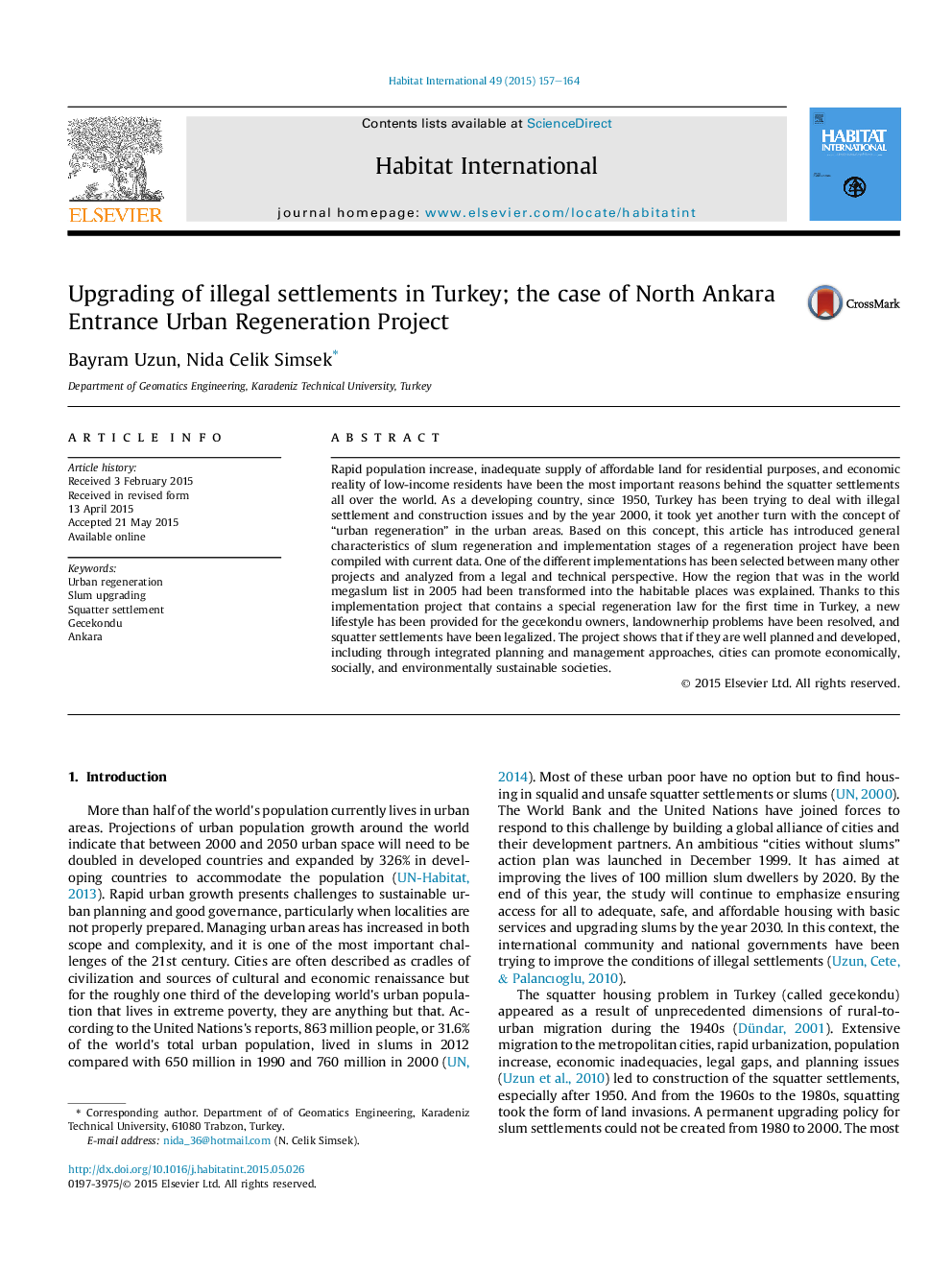| Article ID | Journal | Published Year | Pages | File Type |
|---|---|---|---|---|
| 7456115 | Habitat International | 2015 | 8 Pages |
Abstract
Rapid population increase, inadequate supply of affordable land for residential purposes, and economic reality of low-income residents have been the most important reasons behind the squatter settlements all over the world. As a developing country, since 1950, Turkey has been trying to deal with illegal settlement and construction issues and by the year 2000, it took yet another turn with the concept of “urban regeneration” in the urban areas. Based on this concept, this article has introduced general characteristics of slum regeneration and implementation stages of a regeneration project have been compiled with current data. One of the different implementations has been selected between many other projects and analyzed from a legal and technical perspective. How the region that was in the world megaslum list in 2005 had been transformed into the habitable places was explained. Thanks to this implementation project that contains a special regeneration law for the first time in Turkey, a new lifestyle has been provided for the gecekondu owners, landownerhip problems have been resolved, and squatter settlements have been legalized. The project shows that if they are well planned and developed, including through integrated planning and management approaches, cities can promote economically, socially, and environmentally sustainable societies.
Related Topics
Social Sciences and Humanities
Social Sciences
Development
Authors
Bayram Uzun, Nida Celik Simsek,
